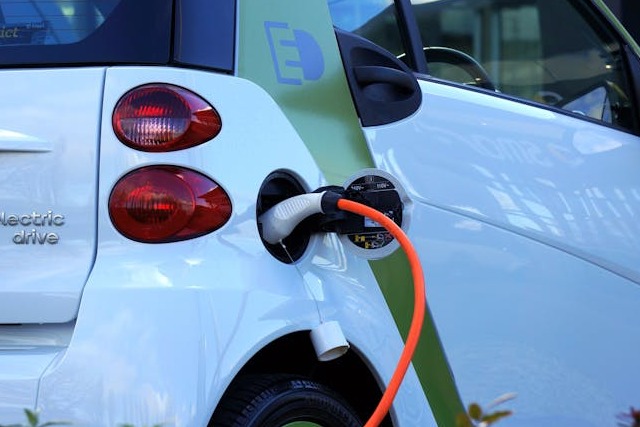
Do Luxury or Electric Vehicles Qualify for Mississippi Lemon Law Claims?
In recent years, the market for electric vehicles (EVs) has surged. Drawn in by environmental benefits, cutting-edge technology, and sleek designs, more and more consumers are opting for electric cars like Teslas, Chevy Bolts, or Nissan Leafs over traditional gas guzzlers.
But what happens when that shiny new EV starts having problems? Can you file a lemon law claim on an electric vehicle the same way you would a conventional car? The answer is yes—but there are some important things EV owners should know.
Understanding Lemon Laws and Electric Vehicles
Lemon laws are consumer protection statutes that provide a legal remedy when you buy a vehicle with serious defects that can’t be repaired after a reasonable number of attempts. While specifics vary by state, lemon laws generally allow buyers to get their money back or receive a replacement vehicle if their car is, well, a lemon.
Most people associate lemon laws with traditional gas-powered vehicles, but they also apply to used cars like electric models. Also, in reality, lemon law protections apply to any passenger vehicle sold with a warranty—regardless of whether it runs on electricity, gas, or a hybrid of the two.
The lemon law process for EVs is much the same as it is for combustion engine vehicles:
- The car has a substantial defect covered by the warranty
- The defect occurred within a certain period after purchase (usually 1-2 years)
- The manufacturer fails to fix the problem after being given a reasonable number of repair attempts or days out of service
If those criteria are met, the vehicle likely qualifies as a lemon under state law—allowing the buyer to seek a refund or replacement. Electric cars are subject to the same laws and requirements in this regard.
Issues to Watch for with Electric and Hybrid Vehicles
While the Lemon law applies to EVs and hybrids in theory, the advanced technology in these vehicles introduces some unique wrinkles to be aware of.
Software and Technology Defects
Many electric vehicle performance issues are related to software glitches rather than traditional mechanical problems. Touchscreen malfunctions, battery management software bugs, autonomous driving hiccups—these types of defects may impair vehicle safety and usability just as much as a faulty transmission would in a conventional car.
But manufacturers may argue software problems don’t qualify as lemon law defects. Or they may claim a software update “fixed” the issue when problems persist. EV owners need to carefully document ongoing impairment to build a successful case.
Repair Timelines and Expertise
Another challenge with enforcing lemon law rights for EVs is that dealers are still catching up on the learning curve with these vehicles. Finding qualified repair technicians with EV expertise can be difficult, leading to longer garage stays and more difficulty getting problems properly diagnosed/fixed.
Manufacturers may claim they need more time to repair novel EV technology. But the lemon law still holds them to a “reasonable” number of attempts timeline—generally 3-4 repairs or 30 days out of service, whichever comes first.
Battery and Range Issues
Defective batteries are one of the most common problems reported by electric vehicle owners. Batteries that won’t hold a charge, have severely degraded capacity, or present a fire/safety hazard are all serious issues that could give rise to a lemon law claim.
However, automakers may argue that some degree of battery degradation is normal over time and thus not a defect. EV owners may need detailed documentation of range reductions or charging problems to prove their case.
Do Luxury Brands Get Special Treatment?
Another common question is whether luxury electric vehicles like Teslas have extra protections. The answer is no.
While manufacturers like Tesla may have their own dispute resolution or customer satisfaction programs, they are not exempt from state lemon laws. A $100,000 electric Mercedes is held to the same basic warranty standards as a $30,000 Nissan Leaf.
In fact, filing a lemon law claim may be the most effective way for luxury EV buyers to get relief. Lemon law remedies like buy-backs or replacements are often more comprehensive than what automakers offer voluntarily.
How to Protect Your Rights as an EV Owner
Knowing lemon laws apply to EVs is one thing—successfully navigating the claim process is another. Here are some tips for electric vehicle owners dealing with potential lemons:
- Keep detailed records. Document every issue, repair visit, and communication with the dealer or manufacturer. This evidence is essential for proving your claim.
- Get repair orders. Make sure the dealer provides a detailed repair order each time you bring the vehicle in, even if it’s something minor. These help establish the first repair attempt date for lemon law timelines.
- Submit your warranty claim in writing. Don’t just rely on verbal notifications. Send a written defect/repair notice to the manufacturer and keep a copy for your records.
- Be careful with settlement offers. Manufacturers may offer to buy back the vehicle for less than what you paid or propose a “goodwill” repair. But these offers may require you to waive your lemon law rights. Consult with a lawyer before accepting.
- Know your rights, and don’t give up. Enforcing the lemon law is rarely easy, especially with newer vehicle tech. But persistence and good recordkeeping pay off. Don’t let the manufacturer string you along with endless repair runarounds!
Get an Experienced Lemon Lawyer on Your Side
At Ware Law Firm, we have deep experience handling lemon law claims for all vehicle types—including electric cars and hybrids. We stay on the cutting edge of this evolving area of law to give EV owners the strong advocacy they need.
If you think you might have an electric vehicle lemon, don’t go it alone. The sooner you get knowledgeable legal counsel in your corner, the better your chances of a favorable outcome. Contact us today for a free case review. We’ll help you understand your rights and options under your state’s lemon law. With skill and tenacity, our team will fight to get you back on the road in a safe, reliable vehicle.




